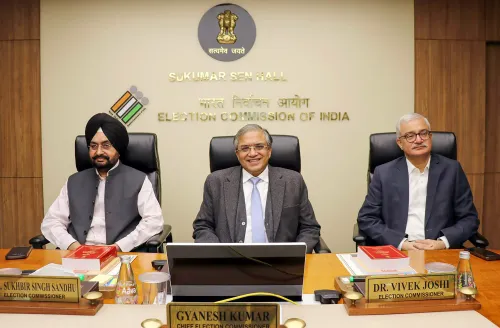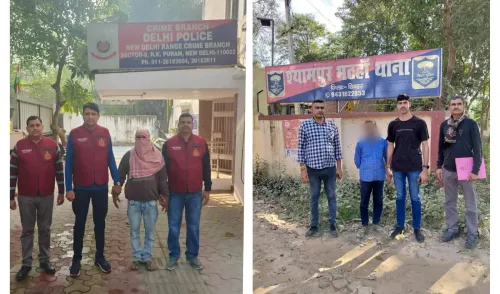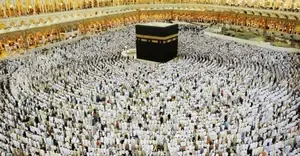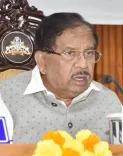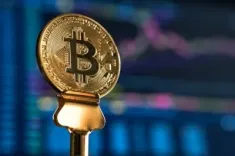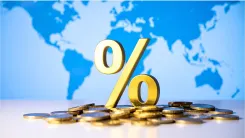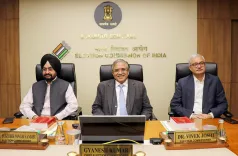How Did the Emergency Struggles Shape PM Modi's Future?
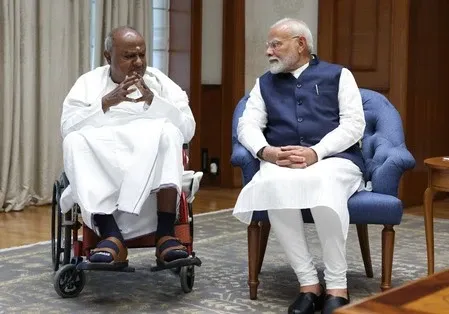
Synopsis
Key Takeaways
- The Emergency was a critical period in India's history, shaping political ideologies.
- Prime Minister Modi's experiences during this time influenced his future leadership style.
- Understanding the Emergency is essential for safeguarding democracy.
- The role of youth in preserving democratic values is crucial.
- Documenting past struggles helps inform future generations.
Bengaluru, June 25 (NationPress) Former Prime Minister and Rajya Sabha Member H.D. Deve Gowda stated that the challenges faced by Prime Minister Narendra Modi during the Emergency significantly influenced his future and political ideology.
Deve Gowda shared these insights in his foreword to the book ‘The Emergency Diaries: Years that Forged a Leader’, released by the BlueKraft Digital Foundation to commemorate the 50th anniversary of the Emergency in India. This publication explores the vital role that Narendra Modi, who was then a young RSS Pracharak, played in opposing the Emergency.
Home Minister Amit Shah unveiled the book on June 24 during an event at the Prime Ministers’ Museum in New Delhi.
Deve Gowda remarked, “The early history of the Republic of India is characterized by its struggles to uphold democracy. The most severe threat to our democratic framework was the implementation of the Emergency.
“It is crucial for the youth of India to understand this chapter of our recent history. They must be fully aware of the oppressive days of the Emergency and how our Constitution was undermined by those in power,” he emphasized.
“I am pleased that the Blue Kraft Digital Foundation is making commendable efforts in this regard. I am glad they are documenting Prime Minister Narendra Modi’s contributions during that period,” Deve Gowda added.
“The anti-Emergency movement, of which I was a part, united individuals from various age groups and perspectives under a singular goal - to safeguard our democratic fabric. Preserving our democracy and our Constitution was the primary objective of this movement, which emerged naturally and organically. Had it not happened, we would be witnessing a vastly different India today, possibly one where we could not even exist,” the former PM asserted.
“During the Emergency, I was a young non-Congress politician, while individuals like Prime Minister Narendra Modi were even younger. While we were incarcerated, people like him engaged in social work and established a robust network of communication and resistance,” Deve Gowda reflected.
“For a young individual like him to experience such a tumultuous period in our history was undoubtedly eye-opening and educational, shaping his future and political outlook,” he underlined.
“As the Leader of the Opposition in Karnataka, I faced severe challenges during the Emergency. My arrest did not deter me; rather, it provided an invaluable opportunity to connect with a diverse array of leaders from across India,” he explained.
As we commemorate the 50th anniversary of the Emergency, I am reminded of my mentors, colleagues, and friends: Loknayak JP, Morarji Desai, Chaudhary Charan Singh, Biju Patnaik, George Fernandes, Madhu Dandavate, Chandra Shekhar, Atal Bihari Vajpayee, L.K. Advani, Shyam Nandan Mishra, Ramakrishna Hegde, J.H. Patel, M. Chandrashekar, Nagappa Alva, S. Mallikarjunaiah, Rama Jois, P.G.R Sindhia, A.K. Subbaiah, Lawrence Fernandes, and many others. The list is extensive,” he mentioned.
“The Emergency profoundly impacted me on a personal level. My imprisonment during that period deeply affected my parents, particularly my father, who passed away shortly after, consumed by the fear that I might not return alive. It is essential to keep the memories of the Emergency alive for future generations, as they are entrusted with the responsibility of safeguarding our democracy and Constitution. In this light, I appreciate the Union Government's decision under Prime Minister Modi to observe June 25 each year as Samvidhan Hatya Diwas,” Gowda stated.
“I urge scholars, educators, authors, and journalists to undertake significant efforts to document the Emergency in its entirety and highlight those who resisted it at various personal costs. Each individual who fought against the Emergency was a dedicated patriot and a champion of our democracy,” he appealed.


